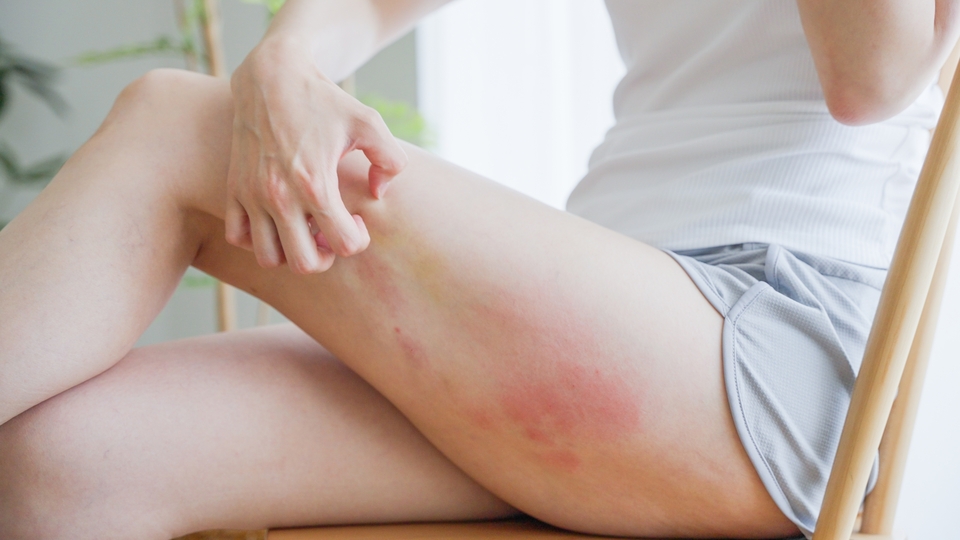Key Differences Between Eczema vs. Psoriasis
Eczema and psoriasis are two common skin conditions that can look similar at first glance, but they have distinct causes, symptoms, and treatment approaches. Understanding the key differences between these chronic conditions is essential for proper diagnosis and management. A study suggests that advancements in the treatment of eczema and psoriasis, particularly through biologics and immunomodulators, may enable individuals with moderate to severe cases of these conditions to reduce their symptoms for a full and enjoyable life.
We break down how eczema and psoriasis differ in appearance, triggers, and treatment, so you can better identify the signs and seek the right care.
Eczema vs. Psoriasis
While both psoriasis and eczema are skin conditions caused by genetically induced dysfunctional immune systems, that's where the similarities end. The causes for the skin conditions, their appearance, symptoms, and treatments can all differ. Once you know what to look for, it’s much easier to figure out which is which.
Eczema
The leading cause of eczema is an immune system dysfunction, usually passed on through genetics and made worse by environmental factors. The immune system overreacts to maintain the skin's barrier function when it is perceived to be weakened by environmental factors, such as irritants, allergens, dry skin, stress, extreme temperatures, or infections. The immune system releases the chemicals, histamines and cytokines, that increase blood vessel permeability and promote inflammation. The affected area of the skin will itch and can have an increased sensitivity to irritants and allergens.
Psoriasis
The immune system dysfunction that causes psoriasis works differently from how it works with eczema, although this is also believed to be a genetic condition. The immune system mistakenly attacks healthy skin cells and sets off the rapid growth of more skin cells. The condition can become worse because of stress, infections, injuries, certain medications, and even some foods. The affected area of the skin can itch, burn, or sometimes bleed.
How to Spot the Difference Between Eczema and Psoriasis
Psoriasis skin is inflamed and scaly. You might see patches of thick, red skin with silvery-white scales appear on the elbows, knees, scalp, trunk, palms, and soles of the feet. You might also see dry, cracked skin or thick, ridged, pitted nails.
Eczema skin is red and swollen. Bumps, blisters, dryness, flakiness, and crustiness can also be seen on the affected skin. Over time, the skin can become thickened and leathery.
Getting Treated
There's good news for those suffering from mild, moderate, or severe eczema and psoriasis. There are treatments available to bring you relief. Take a look at what's available.
Topical therapy
Corticosteroids help reduce inflammation and slow the rapid growth of skin cells. Synthetic versions of vitamin D also regulate skin cell growth and minimize plaques.
Systemic non-biological therapies
Methotrexate and cyclosporine are non-biological drugs that suppress the immune system. They're considered non-biological therapies because they are not produced in living cells, but synthesized in a laboratory.
Phototherapy
Ultraviolet light therapy slows skin cell turnover and lessens scaling and inflammation. This method is recommended when topical treatments aren't effective for moderate to severe psoriasis.
Injectable biologics
As mentioned before, dupilumab, an active ingredient in dupixent injections, suppresses specific parts of the immune system, making it an effective treatment for moderate to severe psoriasis or eczema.
Book an Appointment with Radiant Dermatology Today
Now that you know which condition you might have by learning the differences between eczema and psoriasis and how treatments for mild, moderate, or severe conditions can help restore your quality of life, don't wait to book an appointment now. Relief is just one click away.
Photo credit: polkadot_photo




.svg)



.svg)






.png)


